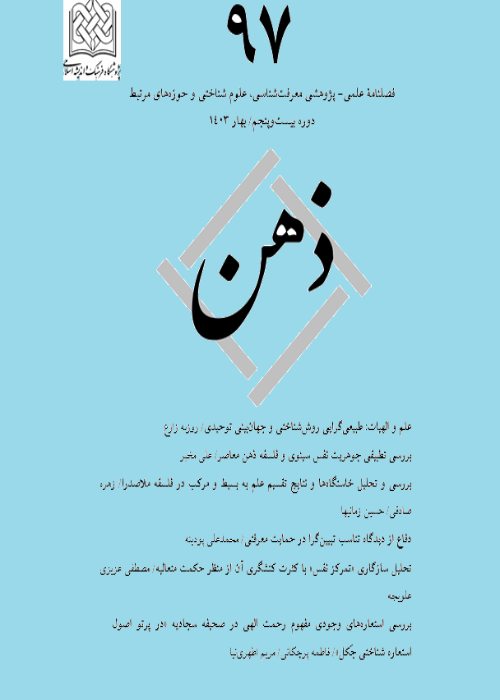The Nature of Possessing Evidence in Epistemology
Evidence in epistemology is good reasons that are indicative of the truth concerning the proposition that is the object of the doxastic attitude. We will see that believers in different views in epistemic justification must answer the question of when a person has good evidence. In this study, we seek to determine under what circumstances a person has a evidence; In other words, the purpose of this article is to explain and evaluate the views of epistemologists on what having a evidence is. It seems that any view in which one's evidence interferes with justification in any way must answer this question. All epistemologists who believe in internalism in justification must answer this question explicitly; Because all internalist believe that epistemic justification depends on the evidence one has. In my opinion, both foundationalists and Coherentists should address this issue. In addition, some externalist theories of epistemic justification also say that a person's belief is justified or reasonable if it is based on evidence. So they also have to look at the circumstances under which a person has a evidence.
In this article, we first state what the characteristics of an acceptable account of having a evidence should be. Then we will mention the different account on this problem, then we will express the arguments and problems they face and finally we will adopt an acceptable account.
In this article, we examine the circumstances under which a person has evidence. As we can see, among the three accounts of evidence possession, the only one that can respond to its own problems and yield the intuitively correct results is the MVP * account. Therefore, this account is accepted in having a evidence. So, from this point of view, in answer to the question of what it is like to have a evidence, we can say that S has p available as evidence relevant to q at t iff at t S is currently aware of p or S is disposed to bring p to mind when reflecting on the question of q’s truth.
Different theories of epistemic justification are bound to answer this question that under what conditions one has evidence. There are three important views concerning the nature of possessing: inclusive view of evidence possession, restrictive view of evidence possession, moderate view of evidence possession. In this paper, we come to this conclusion, after explanation and assessing reasons of these three views about the nature of evidence, that on the one hand inclusive and restrictive views of evidence possession are indefensible and on the other hand an account of moderate view of evidence possession is defensible. We will see that this view is also free from the problems of its rival, so we can agree according to this view in possessing evidence that S has p available as evidence relevant to q at t iff at t S is currently aware of p or S is disposed to bring p to mind when reflecting on the question of q’s truth .
- حق عضویت دریافتی صرف حمایت از نشریات عضو و نگهداری، تکمیل و توسعه مگیران میشود.
- پرداخت حق اشتراک و دانلود مقالات اجازه بازنشر آن در سایر رسانههای چاپی و دیجیتال را به کاربر نمیدهد.


